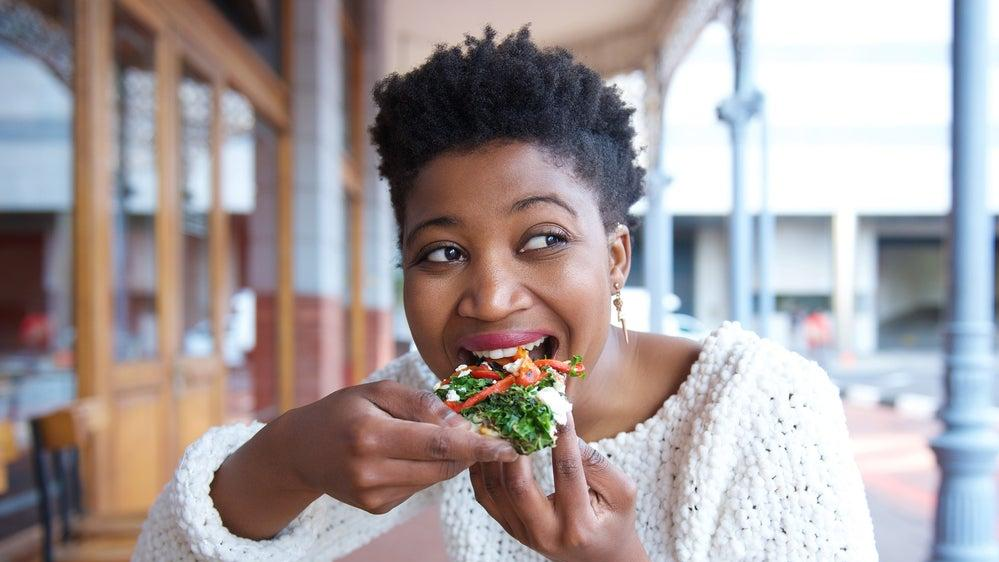Stop Trying To "Trick" Your Brain Around Food
Most of these psychological hacks don't actually promote healthy behavior.
Earlier this week, The Guardian published an article titled "How to trick your brain into better eating habits." The article cites Charles Spence, a professor of experimental psychology at Oxford University, who researches the psychology of food choice. Spence makes some great recommendations—eating with friends, for example, or enjoying the sensory aspects of even the simplest meals. The problem? Almost all of these suggestions are a thinly veiled way to encourage people to eat less—and "less" doesn't always mean "healthy."
Why “tricking” your brain is a bad idea
In the article, Spence suggests ways to alter your dining experience with the goal of "tricking" your brain so as to make "better decisions for your body." Taken individually, Spence's suggestions are perfectly lovely. He encourages readers to eat with their eyes, enjoying colors and textures for a holistic sensory experience. He extols the many virtues of the communal meal and suggests slowing down to enjoy every bite. But taken together, Spence's suggestions aren't necessarily framed as a way to eat "better." They're a way to eat less.
Take, for example, Spence's suggestion to use heavier cutlery to feel fuller, faster. "Heavier cutlery enhances our appreciation of [food], as does eating with our hands, which engages our senses and makes us more mindful," explains Guardian writer Claire Finney. But, once again, this article isn't about tricking your brain into better engaging your senses. It's about "better" eating habits. Translation: eating less of the food.
Spence also recommends leaning into the sensory aspects of dining—the aromas wafting from a fresh cup of coffee, for example. Yes! Excellent! We like that! Then comes the kicker (emphasis ours): "Anything you can do to pay more attention and eat more slowly, to be more mindful in the moment, will likely enhance the sensations associated with eating and mean that you are satisfied with less," says Spence.
Ugh. You almost had it, buddy.
Forgive me, but I don't need another expert telling me that I need to be satisfied with less food and fewer calories. I get enough of that from literally every form of content—print, digital, billboard, etc.—I consume on a daily basis. Every day, I wake up and immediately plunge into a world in which reducing my caloric consumption would be considered an act of heroism.
Once again, I appreciate some of Spence's suggestions. I'd be delighted to see more experts discussing ways to enjoy the unique flavors and textures of vegetables. I'm very much in favor of creative solutions to increase the American public's overall nutrient consumption. What I'm not in favor of is the idea that dinner party guests should reduce their food consumption by any means necessary—even if that includes using a five-pound fork.
I've had a busted relationship with food for years. Chances are you have, too. That's why articles like this one bother me: they perpetuate the idea that eating less is a one-way ticket to eating healthier. Not so, friends! Healthy eating is about adding nutrients to every meal, fueling your body appropriately and joyfully, and celebrating the soul-soothing benefits of a communal meal. Obsessing over little psychological brain tricks in a desperate effort to eat less? Nothing healthy about that, folks.
